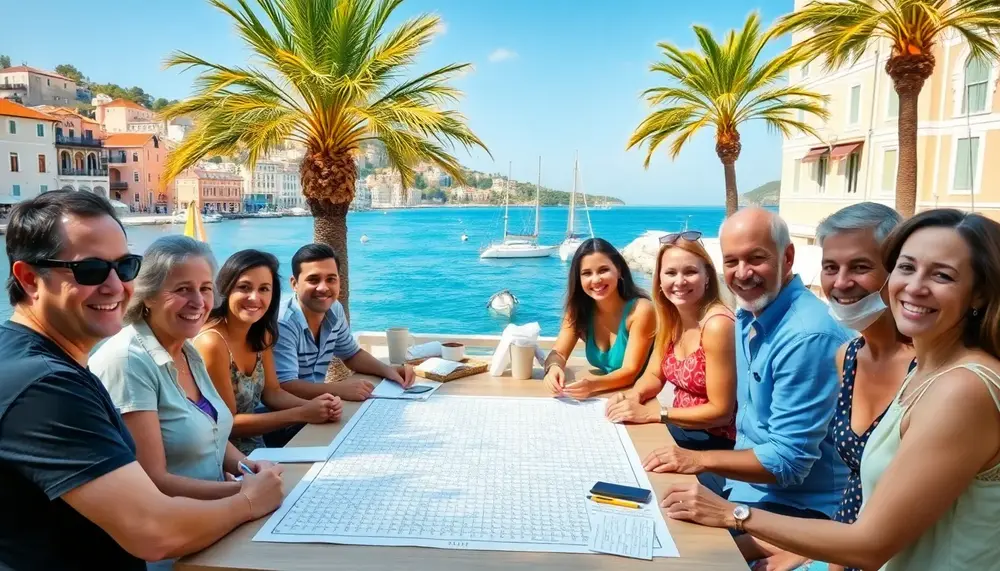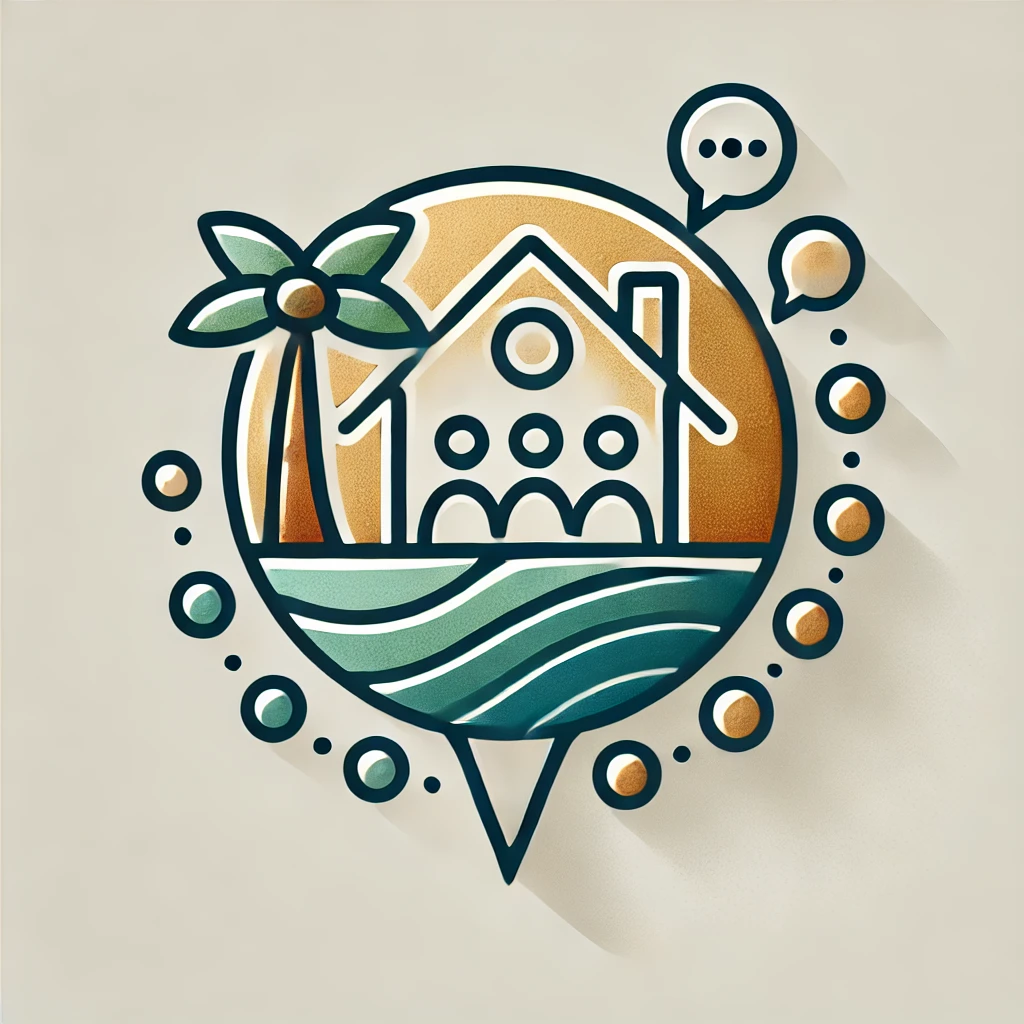Table of Contents:
Identifying the Most Likely Answer: ZADAR
When you come across the crossword clue hinting at a "Croatian coastal city," especially with a nod to medieval fortifications, ZADAR jumps out as the most probable answer. Why? For starters, Zadar’s reputation is tightly bound to its ancient city walls and impressive historical structures, which have survived centuries of change and conflict. The city’s name, compact and punchy with just five letters, fits seamlessly into most crossword grids—especially when the puzzle demands a concise solution.
But there’s more beneath the surface. Zadar isn’t just any coastal city; it’s a UNESCO World Heritage site specifically recognized for its Venetian defensive works. That detail alone makes it a prime candidate when a crossword clue leans on the theme of fortifications or medieval architecture. The unique combination of historical significance, architectural legacy, and the perfect letter count puts Zadar in the crossword spotlight, outshining less relevant options. If you spot intersecting letters like ‘Z’ or ‘D’ in your puzzle, that’s another strong nudge toward this Adriatic gem.
Considering Letter Counts: ZADAR vs. DUBROVNIK
Letter count is often the dealbreaker in crossword puzzles, and it’s easy to get tripped up if you don’t pay close attention. When the clue asks for a Croatian coastal city, you might be torn between ZADAR and DUBROVNIK. Here’s how to make the right call:
- ZADAR fits perfectly when the puzzle demands a five-letter answer. Its brevity makes it a frequent go-to for compact grids or quick clues.
- DUBROVNIK, on the other hand, stretches out to nine letters. If your crossword has a longer space and perhaps references grander or more extensive fortifications, Dubrovnik could be the better fit.
Double-check the intersecting letters from other clues. Sometimes, a single misplaced letter can throw off your entire solution. In cases where the number of boxes is ambiguous, count carefully and consider which city’s spelling matches the available spaces. Ultimately, matching the letter count is just as crucial as knowing the city’s history or fame.
Pros and Cons of Using ZADAR vs. DUBROVNIK in Croatian Coastal City Crosswords
| Aspect | ZADAR | DUBROVNIK |
|---|---|---|
| Letter Count | Five letters—ideal for compact grids | Nine letters—fits longer crossword answers |
| Historical Significance | Noted for Venetian walls; UNESCO city | Famous for massive medieval fortifications; UNESCO city |
| Clue Indicators | “Walled city,” “medieval,” “Venetian,” “Sea Organ” | “Pearl of the Adriatic,” “Game of Thrones,” “old town” |
| Frequency in Crosswords | Common due to succinct name | Appears when grid permits long answers |
| Typical Puzzle Scenarios | Five empty boxes, hints at fortifications | Nine empty boxes, references to grandeur or cultural fame |
| Unique Letters | Distinctive “Z” and “D” can guide solvers | Uncommon letters like “K” and “V” offer strong clues |
Matching Crossword Clues with Croatian Coastal Cities
Crossword clues often use clever wordplay or subtle hints to point toward specific Croatian coastal cities. Sometimes, the clue might mention “ancient port,” “walled city,” or even “Adriatic gem”—each phrase narrowing the field of possible answers. It’s not just about knowing geography; it’s about reading between the lines and catching those hidden signals.
- Clues referencing Roman ruins or Venetian heritage usually suggest cities like Split or Šibenik, but if the clue also mentions fortifications, you’re likely looking for a city with well-preserved walls.
- Mentions of UNESCO status can be a dead giveaway, as only a handful of Croatian coastal cities have this distinction. Look for clues that reference global recognition or protected sites.
- Allusions to famous landmarks—such as “Sea Organ” or “Old Town”—are strong indicators. Each city has its own iconic feature, so matching the clue’s language to the right city is key.
Don’t forget: crossword creators sometimes use synonyms or less obvious descriptions. If the clue feels tricky, consider alternative names or historic spellings, as some puzzles lean on older or anglicized versions of city names. Staying alert to these subtleties can make all the difference when matching clues to the correct Croatian coastal city.
Practical Example: Solving for a Five-Letter Answer
Let’s dive right into a real-world scenario: your crossword puzzle gives the clue “Croatian coastal city” and you count exactly five blank spaces. What’s the smartest approach? First, scan the intersecting words—maybe you already have a Z or D in place. That’s a huge hint. Next, mentally list five-letter Croatian cities on the coast. Most will quickly realize that options are extremely limited.
- If the clue hints at a historic or fortified city, focus your attention on cities known for such features.
- Check for any letters you’ve already filled in from crossing answers. Even a single matching letter can confirm your hunch.
- Consider whether the puzzle’s theme or other clues point toward a particular region or era—sometimes, crosswords run with a motif that can guide your guess.
Once you’ve matched the letter count, city reputation, and any intersecting letters, you’ll find that ZADAR fits like a glove. It’s a satisfying moment when everything clicks into place, and the five-letter solution reveals itself with certainty.
When to Choose DUBROVNIK Instead
There are moments when the five-letter answer just doesn’t fit, and you’re staring at a longer slot—nine spaces, to be exact. That’s when DUBROVNIK steps into the spotlight. But it’s not just about length; the nature of the clue can make all the difference.
- If the crossword clue highlights a city renowned for its massive stone walls, legendary old town, or perhaps even mentions filming locations for popular TV series, DUBROVNIK is almost certainly the intended answer.
- References to “Pearl of the Adriatic,” “Game of Thrones,” or “UNESCO World Heritage city” are dead giveaways. These are Dubrovnik’s unique identifiers and rarely apply to other Croatian cities.
- When the puzzle emphasizes grandeur, global tourism, or a city famous for its medieval charm and dramatic seafront fortifications, it’s time to write in DUBROVNIK.
Always weigh the clue’s context and the number of letters required. When those elements line up, Dubrovnik is the clear, unambiguous choice.
Tips for Narrowing Down Your Crossword Solution
Struggling to pinpoint the right Croatian coastal city in your crossword? Try these targeted strategies to sharpen your answer and avoid common pitfalls:
- Analyze clue phrasing: Look for adjectives or historical references that hint at a specific era, architectural style, or cultural significance. Words like “ancient,” “Venetian,” or “walled” can steer you toward the right city.
- Consider alternate spellings: Some puzzles use anglicized or historic versions of city names. Double-check if the answer could be spelled differently than expected.
- Leverage crossing words: Use the letters you already have from intersecting answers to rule out cities that don’t fit, even if they seem plausible at first glance.
- Check for unique letters: Croatian city names sometimes include less common letters like “Z,” “K,” or “V.” If you see these in your grid, they can be powerful clues.
- Research thematic hints: Occasionally, the crossword’s overall theme—such as European travel or UNESCO sites—can help you focus on cities that match the broader context.
Combining these approaches will help you zero in on the correct answer and boost your confidence for future puzzles.
Summary: Finding the Right Croatian Coastal City
Solving crossword clues for Croatian coastal cities sometimes means venturing beyond the obvious. To truly master these puzzles, it helps to be aware of less famous, yet still coastal, Croatian cities that occasionally pop up in more challenging grids. For instance, cities like Rijeka or Pula might be used when the clue hints at Roman amphitheaters or major Adriatic ports. Even Šibenik could appear if the puzzle references Renaissance fortresses or cathedral architecture.
- Always check for regional hints in the clue, such as references to Istria or Dalmatia, which can narrow your options significantly.
- Stay alert for wordplay or double meanings, as some clues might disguise the city name within a pun or indirect reference.
- Don’t overlook the possibility of abbreviations or shortened forms, especially in compact or cryptic crosswords.
With these extra layers of awareness, you’ll be better equipped to identify the right Croatian coastal city, even when the puzzle creator tries to throw you off the scent.
FAQ: Solving Croatian Coastal City Crossword Clues
What is the most common answer for the crossword clue "Croatian coastal city"?
The most common answer is ZADAR, especially when the crossword requires a five-letter word. Zadar is known for its historic coastal setting and medieval fortifications.
When should I use DUBROVNIK as the answer in a crossword?
Choose DUBROVNIK when the crossword clue specifies a nine-letter solution and hints at grand fortifications, famous city walls, or references to the "Pearl of the Adriatic." Dubrovnik is a UNESCO World Heritage site famous for its massive medieval walls.
Which clues suggest ZADAR is the correct answer?
Clues mentioning “medieval fortifications,” “Venetian walls,” or “Sea Organ” often point to Zadar. If there are five spaces for the answer and intersecting letters like Z or D, Zadar becomes the likely choice.
Are there other Croatian coastal cities that come up in crosswords?
Yes, less frequently, cities like Split, Rijeka, Pula, or Šibenik might appear, especially if clues reference Roman ruins, major ports, amphitheaters, or Renaissance architecture. However, these are rarer compared to Zadar and Dubrovnik.
What strategies help narrow down the right city in a crossword?
Count the blank squares, look for unique intersecting letters like Z, K, or V, and pay attention to specific descriptors in the clue—such as “walled city,” “UNESCO," or “Adriatic port.” Matching letter count and clue details is key to finding the right answer.





